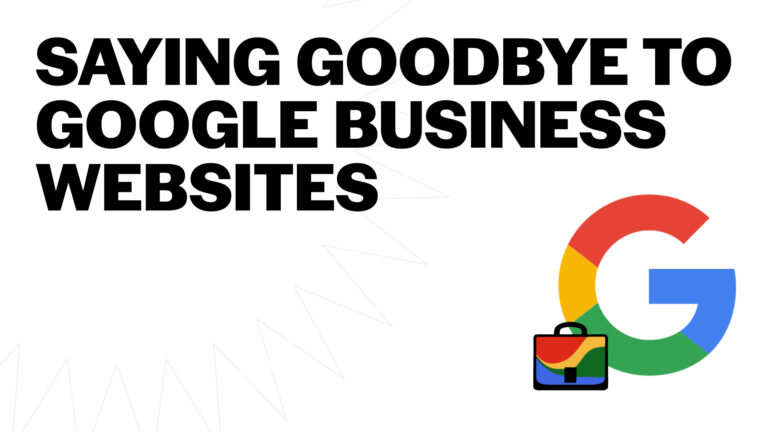AI has changed the marketing and creative world forever with technology we have never seen before. AI or artificial intelligence is a machine or program’s ability to perform cognitive functions we associate with human minds, like perceiving, reasoning, and learning. As AI debuted in the creative industry, excitement and fear followed. There are many pros to using AI, and many new softwares have been developed since the introduction of ChatGPT to the public earlier this year. Marketers, designers, and copywriters are now curious about how AI will affect future careers and marketing functions for the better or for the worse. Rather than fearing AI threatening jobs, we have allowed it to enhance our work for the benefit of our clients and streamline daily tasks, freeing up time for creative exploration and learning.
Pros of AI in Marketing
While there is a lot of fear surrounding AI, including job security concerns, there are also many positive things to come from it. Everything from data-driven decision-making and automation has come from AI, enhancing processes within all pillars of marketing. ChatGPT has changed the copywriting world by creating outlines for blog posts and critiquing work to enhance SEO optimization. With Photoshop’s new Generative Fill feature, designers are now developing unique images without searching for the perfect stock image. Instead of hiring voice actors and running the risk of getting it wrong, we are able to create and adjust human-like audio for videos with WellSaid.
Enhanced Data Analysis
Because AI is a computer program typically meant to do one thing efficiently, it is able to process large amounts of data in a fraction of the time a human could. AI is looking for patterns, learning from this, and analyzing live data, making predictions about what it means for the future. Rather than a human looking at the data and attempting to decipher what it tells us, AI can do this in real-time and report its outcome immediately. Learn more about specific data analysis software here.
With consistent data reporting, decisions for the future become easier. Data-driven decision-making is essential in marketing, especially with the constantly changing trends, traffic to social media platforms and websites, and algorithms we deal with daily. Analyzing data in real-time allows us to adapt to these elements, creating highly targeted and trending content across all channels of marketing, from email marketing campaigns to Facebook Ads.
Personalized Customer Experiences
Because we have learned to use AI for our benefit, consumers are more likely to interact with content because we have tailored their experience through their favorite platforms and communication channels. Targeting consumers can be a daunting task, especially when first starting out. Defining your target audience becomes even easier with AI analytics and, from there, allows businesses to target specific customers through media they want to see.
For example, email platforms such as Klaviyo, allow email marketers to analyze subscriber behavior to target people with media on Facebook and through other marketing channels. AI integrations like Tellius work alongside email platforms to allow businesses to analyze data faster, allowing them to segment lists and target subscribers with specific ads and other media based on how the consumer interacted with the content.
Improved Targeting and Segmentation
Exposing consumers to highly-targeting messaging and imagery allows businesses to relate to customers and encourage them to interact with the material or make a purchase. Knowing your audience and how they behave is essential to persuading customers that they need your product or service. Facebook Ads and other marketing materials become irrelevant if they are not reaching your intended audience.
AI can be used to optimize and personalize customer content by using data-driven algorithms to identify and create segments. Consumers can overlook general messaging because they have seen it before or are no longer interested in a product or service, decreasing their interaction and interest. Grouping consumers based on their similarities, such as gender, location, and engagement level, allows you to send highly targeted material with which the group is more likely to interact. AI can assist in creating automated messaging to keep consumers engaged with your content without manually interacting with each individual.
Automation and Efficiency
Repetitive tasks are perfect for AI software to handle. There is AI software for all kinds of tasks, like searching for keywords for SEO optimization, tracking metrics, and even content creation. Opportunities for integrating AI into day-to-day tasks are endless. Using AI to assist in content creation can shave off hours of work with applications like Veed.io, a video creation software, and Photoshop’s new Generative Fill function. ChatGPT has also become a catalyst for ideas and to get creative juices flowing.
Using software such as ChatGPT can allow more time for creators to work on more extensive projects rather than spending hours doing mindless tasks. Brainstorming sessions become quicker and easier with a simple prompt sparking an idea that otherwise would have taken hours to realize. We like to use AI as an assistant when working on new ideas or concepts to make our brainstorming sessions more efficient.
Cons of AI in Marketing
While AI can be a helpful tool, there are concerns about AI replacing humans and making us more lazy when creating content or coming up with original ideas. AI can be programmed to appear as human as possible, but it can never be as personal or come up with the out-of-the-box ideas that creators come up with. Not only has AI been a cause for concern in job security, but it has sparked fear ranging from intellectual property concerns to what it’s capable of generating. AI has been scrutinized by plenty of organizations, including the US government.
Ethical Concerns
AI has been integrated into countless industries, from medical diagnosis to social media interaction. Human rights have become threatened by the use of AI. Basic freedoms granted to each of us become a cause for concern in the upcoming AI world. The division between social classes, surveillance, and independent thoughts and judgment are some of the major concerns with AI. The government and other entities have begun fighting for mitigation and regulation in regard to Artificial intelligence.
It’s important to recognize how powerful AI can be and how to avoid the grey area. Transparency from businesses and developers can hinder the trust of consumers and tarnish a brand’s reputation. The dilemma of personal property becomes a concern for many creators and marketers because of the sheer unknown stemming from AI. Imagine getting excited about an original idea only to realize that someone came up with the same idea, which was generated by AI.
Lack of Human Touch
AI is capable of countless tasks, some even faster than humans, but at what cost? A computer’s ability to relate and sympathize with humans is nonexistent. From a social media standpoint, most people look for relatability in content. AI is simply not capable of emotional touch in messaging. While AI is capable of reputation management and content creation, rigid programming can come off as annoying and impersonal. This is another reason AI should be utilized as a tool rather than a content creation platform or communication source. Human intelligence is significantly different from Artificial Intelligence.
I think we’ve all experienced the “Live Chat” loop of desperately trying to get in touch with a real person. Companies do this to streamline answering questions and reduce the need for human interaction, but sometimes a human would make the experience more personal and helpful. While businesses would like to get through their docket faster, they could be harming their customer relationships and brand reputation by utilizing AI software. Most humans prefer human interaction, whether in the form of the content they’re exposed to or to get a question answered.
Bias and Discrimination
There has been some concern surrounding AI bias. AI bias is where AI makes decisions that are systematically unfair to particular individuals or groups of people. AI bias can occur because humans choose the algorithms’ data and how the results will be utilized. For example, a US Department of Commerce study found that facial recognition AI often misidentifies people of color. If law enforcement uses facial recognition tools, this bias could lead to wrongful arrests.
In marketing and advertising, we must be aware of the consequences of bias in AI. Data efficiency and target audiences can be tainted by AI failure leading to reputational harm, legal liability, and financial loss. Marketers must take crucial steps to prevent AI failure and choose trusted AI software. We work to utilize transparent and secure software to ensure fairness and compliance with policies and regulations surrounding all pillars of marketing. Research and awareness are important in selecting new software.
Dependency and Skill Gaps
AI is an extremely powerful tool; however, there is some laziness that can come from using it too frequently or relying on it too heavily. Creativity can be crushed by the constant need for someone or something else to develop ideas. Yes, these new softwares can be helpful and streamline many brainstorming sessions or easily come up with a catchy headline, but the skills and creativity humans have can diminish with the increased AI surrounding content creation and data analysis.
AI software can also be a learning curve for some. Ever-changing software is something we face with the programs we utilize daily. Even programs that have been around since the time computers became popular have begun integrating AI software. As AI intrudes on our day-to-day activities, marketers and business owners must learn to adapt to the new technology for fear of falling behind. Educating employees on technology that seems to change daily can become costly and time-consuming.
Conclusion
On top of the new generative software like ChatGPT and Photoshop’s Generative Fill, AI surrounds us. From Facebook Ads to your For You Page on TikTok, AI algorithms analyze your interactions and determine what type of content to show you, whether you realize it or not. AI has become a prominent subject among content creators, marketing specialists, and the world. AI has streamlined many processes and continues to evolve for our benefit. However, little regulation and ethical concerns threaten the use of AI. With proper education and use, AI can be your best friend.
Continue to learn about AI and its effects on your marketing efforts. AI is a powerful tool for a range of marketing areas, including copywriting, graphic and web design, campaign management, and even video and photo editing. Making yourself, clients, and audience aware of AI and its pros and cons is essential to maintaining transparent and trusted AI use across many industries. As AI continues to grow and develop, consider your own implications of AI in your marketing efforts.
Sources:
https://towardsdatascience.com/advantages-and-disadvantages-of-artificial-intelligence-182a5ef6588c


